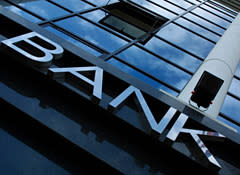You can expect more bank fees in 2012


Banks will continue to experiment with fee increases in the New Year, according to our own analysis and industry experts, as they attempt to make up billions in lost revenue due to the bad economy and new regulations.
Here is some of what you can expect for 2012:
Higher penalty fees: Overdraw your account, and you’ll probably pay more. It costs banks just a few cents to handle a debit-card transaction, but when an account is overdrawn and the bank has to figure out what happened, the cost can escalate to $13.
Less-favorable rates: Banks could try to reduce their losses by increasing the interest-rate margin—the spread between what they pay to borrow money and what they charge to lend it. That could mean higher lending rates, especially on credit cards and other unsecured loans, as well as on auto loans.
Charges for premium services: Customers could see new or higher charges for premium services, such as safe-deposit boxes, online budgeting tools, or person-to-person payments, such as Chase’s QuickPay service, which allows you to send money to someone else using just an e-mail address or cell phone number.
Move toward electronic banking: Banks save when you serve yourself, just like gas stations do when you pump your own. So expect them to push computer and mobile-phone banking. That means you might pay more if you use a teller or speak with someone on the telephone. Some banks might present the changes as a perk, not a fee.
Big credit-card push: Banks are likely to encourage the use of credit cards, says Bill Hardekopf, CEO of LowCards.com, a consumer resource for credit-card information in Birmingham, Ala. They get a swipe fee when someone uses a credit card, and so far those fees have escaped regulation that has made debit cards less profitable for banks.
More relationship accounts: Banks will probably dangle more carrots and brandish more sticks to get you to consolidate your accounts at a single institution, which will mean more fees. But you can avoid them by, for example, having direct deposit of your paycheck or linking your savings and investments.
For more predicted changes, you can see our report Take on your bank, which appeared in the February issue of Consumer Reports. The full report also includes reader ratings of services at 13 national brokerages in Where to put your money (available to subscribers).
Consumer Reports has no relationship with any advertisers on Yahoo!
Copyright © 2008-2012 Consumers Union of U.S., Inc. No reproduction in whole or in part without written permission.
More From Consumer Reports

